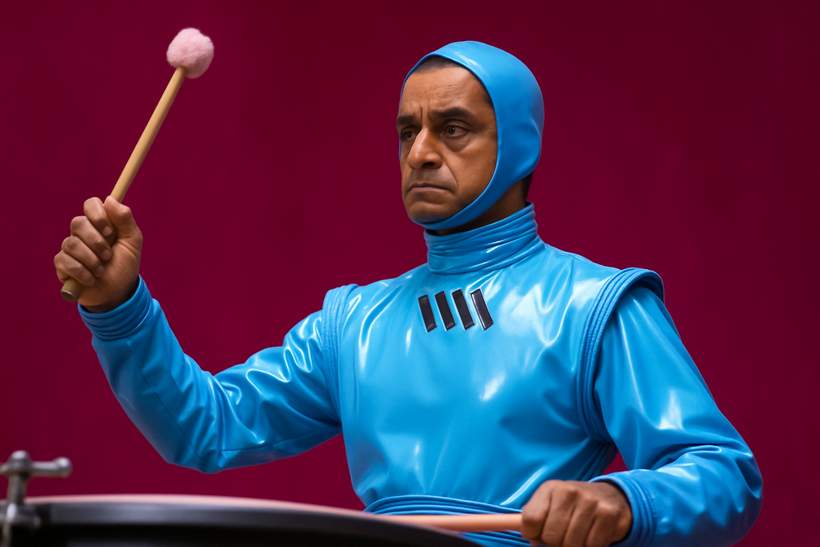
Why Tim Burton’s Willy Wonka Movie Deserves Some Gen Z Love
A Sweet Throwback
Ah, the magical land of chocolate! Released back in 1971, Willy Wonka and the Chocolate Factory has become a legendary flick for those of us who grew up in the Gen X era. This wasn’t just a kids’ movie; it was a cultural phenomenon, filled with everlasting nostalgia and quirky moments we’d later poke fun at like old family holiday photos. Although Roald Dahl got the spotlight for his screenplay, a lot of the juicy bits came from the creative pen of David Seltzer. It was a wild mix of surreal ’60s vibes and family-friendly antics, making it the ultimate candidate for ironic appreciation.
Enter Gen Z’s Chocolate Factory
Fast forward to 2005, and we’ve got a remake that’s as infamous as it is beloved in some circles—Tim Burton’s version gave us a fresh take that was welcomed by a whole new generation. Gen Z faced their own rollercoaster of emotions in a world reeling from post-9/11 anxiety and the financial meltdown looming on the horizon. No pressure, right? Instead of a fun trip down memory lane, they got a Willy Wonka who felt more like a slightly creepy talk-show host. Johnny Depp’s portrayal was, let’s just say, a little “off” compared to the classic charm of Gene Wilder.
Welcome to Wonka’s World
In 1971, Wilder’s Wonka made an unforgettable entrance, limping onto the scene like a perfectly scripted magician. With a dramatic flair, he feigned a tumble only to bounce back with a grin wider than a chocolate bar. He knew how to keep the audience curious—what was he up to? Was he really the whimsical chocolatier he portrayed, or was there something a tad quirky lurking behind that smile?
Now let’s talk about Burton’s intro, which, while grand, flips the script. Set against a backdrop of menacing grayness, we meet Charlie and his crew gazing at the cold concrete structure of Wonka’s factory as eerie, choral music sets the stage. Instead of a warm greeting, an ominous voice commands them: “Come forth!” Cue the puppet show, where the marionettes are singing about the wonders of Wonka, yet something about them feels off—like they’re about to audition for a horror flick instead of a charming candy tale.
Two Takes on a Tyler Perry-esque Drama
According to whispers from film lore, Wilder’s limp was a deliberate trick to keep audiences guessing about his character. He was like a magician always performing, while Depp’s Wonka offered a much weirder, stilted presentation—attempting to charm with quotes from songs that felt outdated even back in the ‘70s. This Willy lived in a world of isolation, crafting his own thoughts while struggling to connect with those around him. Sounds like a mood for anyone scrolling through social media.
Musical Melodies and Oompa-Loompa Antics
Now, let’s not forget the songs! Back in the day, the 1971 film gifted us with iconic tunes and whimsical Oompa-Loompas that danced their way into our hearts. I mean, even Marilyn Manson makes references to them! Fast forward thirty-four years and Danny Elfman, with his Oingo Boingo past, blesses us with catchy tunes that playfully narrate the demise of those quirky kids in a delightful manner. From dreamy pop to vibrant rock, each jam features the legendary Deep Roy doing his thing, giving us a rainbow of dance styles while also helping us forget that the chocolate factory’s workers have some serious ethical implications.
Not Just a Sugar Rush
Some might suggest these movies are merely about a whimsical candy factory, but peel back the layers, and you’ll find a darker reality lounging in the corners. The story carries shards of despair alongside glimmers of hope, mainly embodied by our beloved Charlie Bucket, whose journey could thrive on optimism. As Gen Z matures and moves toward leadership roles, let’s hope they carry that spirit with them into a world where they can create communal and enriching experiences—playing the long game instead of getting sidetracked by bright, shiny distractions.